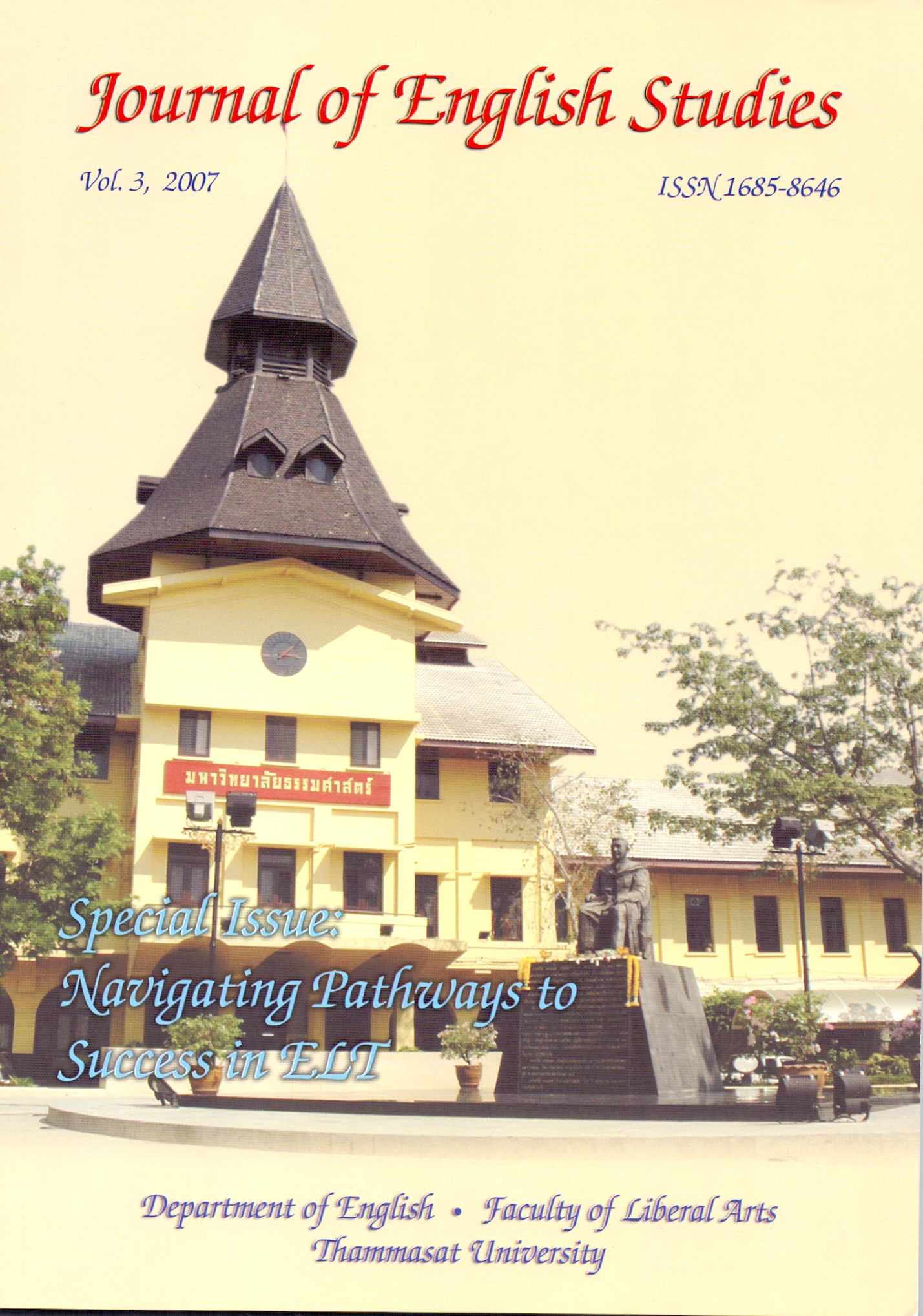Creativity in EFL Classrooms: Theory and Possibility
Main Article Content
Abstract
The most common complaint shared by EFL teachers and students alike is that after years of English language instructions, most students are not well-versed in English. EFL students, from my observation, have been taught, though indirectly, to abide by Grice's Cooperative Principle; hence, one area lacking is their creative thinking skills, which are important in language production.
This paper draws mainly from Carter's Language and Creativity (2005), which demonstrates the vast creativity in everyday language of English native speakers. Following the argument that literary language is not a special kind of language deviating from that commonly dubbed 'normal' everyday occurrences, I will introduce some literary activities which can be used in EFL classrooms to promote language awareness and creativity, hence the natural flow of language.

